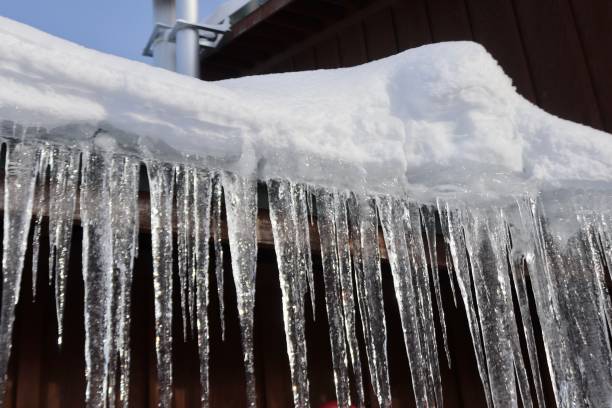Guidance for Avoiding Frozen Plumbing in Cold Weather: Specialist Tips
Guidance for Avoiding Frozen Plumbing in Cold Weather: Specialist Tips
Blog Article
Do you find yourself interested in selective information about Winter Plumbing Precautions: Preventing Frozen Pipes?
:strip_icc()/snow-outdoor-faucet-pipes-4af65d1e5e904fb1aa7bf74071fe5d89.jpg)
Cold weather can wreak havoc on your plumbing, specifically by freezing pipes. Right here's exactly how to prevent it from occurring and what to do if it does.
Introduction
As temperature levels drop, the risk of icy pipelines increases, possibly leading to expensive fixings and water damage. Recognizing just how to prevent icy pipelines is vital for homeowners in cold environments.
Prevention Tips
Insulating vulnerable pipelines
Cover pipes in insulation sleeves or make use of warm tape to shield them from freezing temperatures. Focus on pipelines in unheated or exterior locations of the home.
Heating strategies
Keep indoor rooms adequately heated up, especially areas with pipes. Open up closet doors to allow warm air to flow around pipelines under sinks.
Exactly how to determine frozen pipes
Look for reduced water circulation from faucets, uncommon odors or sounds from pipelines, and noticeable frost on revealed pipelines.
Long-Term Solutions
Architectural adjustments
Think about rerouting pipelines far from exterior wall surfaces or unheated locations. Include additional insulation to attics, cellars, and crawl spaces.
Upgrading insulation
Buy high-grade insulation for pipes, attic rooms, and walls. Appropriate insulation helps maintain constant temperature levels and minimizes the risk of icy pipes.
Shielding Outdoor Plumbing
Garden pipes and outdoor taps
Detach and drain yard hose pipes prior to winter season. Mount frost-proof spigots or cover outside faucets with insulated caps.
Recognizing Icy Pipelines
What triggers pipelines to freeze?
Pipes freeze when revealed to temperature levels listed below 32 ° F (0 ° C) for prolonged durations. As water inside the pipes freezes, it expands, putting pressure on the pipeline wall surfaces and possibly triggering them to burst.
Dangers and problems
Frozen pipelines can result in water interruptions, residential or commercial property damages, and pricey fixings. Burst pipes can flood homes and create considerable architectural damage.
Indicators of Frozen Water Lines
Determining icy pipes early can prevent them from bursting.
What to Do If Your Pipelines Freeze
Immediate actions to take
If you think icy pipes, maintain taps available to ease pressure as the ice melts. Use a hairdryer or towels soaked in warm water to thaw pipelines gradually.
Final thought
Avoiding frozen pipelines needs proactive actions and fast actions. By recognizing the causes, indicators, and safety nets, home owners can shield their pipes throughout cold weather.
Helpful Tips to Prevent Frozen Pipes this Winter
UNDERSTANDING THE BASICS: WHY PIPES FREEZE AND WHY IT’S A PROBLEM
Water freezing inside pipes is common during the winter months, but understanding why pipes freeze, and the potential problems it can cause is crucial in preventing such incidents. This section will delve into the basics of why pipes freeze and the associated problems that may arise.
THE SCIENCE BEHIND FROZEN PIPES
When water reaches freezing temperatures, it undergoes a physical transformation and solidifies into ice. This expansion of water as it freezes is the primary reason pipes can burst. As the water inside the pipe freezes, it expands, creating immense pressure on the walls. If the pressure becomes too great, the pipe can crack or rupture, leading to leaks and water damage.
FACTORS THAT CONTRIBUTE TO PIPE FREEZING
Low Temperatures: Extremely cold weather, especially below freezing, increases the risk of pipes freezing. Uninsulated or Poorly Insulated Pipes: Pipes located in unheated areas, such as basements, crawl spaces, or attics, are more prone to freezing. Insufficient insulation or lack of insulation altogether exacerbates the problem. Exterior Wall Exposure: Pipes running along exterior walls are susceptible to freezing as they encounter colder temperatures outside. Lack of Heating or Temperature Regulation: Inadequate heating or inconsistent temperature control in your home can contribute to frozen pipes. PROBLEMS CAUSED BY FROZEN PIPES
- Pipe Bursting: As mentioned earlier, the expansion of water as it freezes can cause pipes to burst, resulting in significant water damage.
- Water Damage: When pipes burst, it can lead to flooding and water damage to your property, including walls, ceilings, flooring, and personal belongings.
- Structural Damage: Prolonged exposure to water from burst pipes can compromise the structural integrity of your home, leading to costly repairs.
- Mold and Mildew Growth: Excess moisture from water damage can create a favorable environment for mold and mildew growth, posing health risks to occupants.
- Disrupted Water Supply: Frozen pipes can also result in a complete or partial loss of water supply until the issue is resolved.
WHY CERTAIN PIPES ARE MORE PRONE TO FREEZING
- Location: Pipes located in unheated or poorly insulated areas, such as basements, crawl spaces, attics, or exterior walls, are at higher risk of freezing.
- Exterior Pipes: Outdoor pipes, such as those used for irrigation or exposed plumbing, are particularly vulnerable to freezing as they are directly exposed to the elements.
- Supply Lines: Pipes that carry water from the main water supply into your home, including the main water line, are critical to protect as freezing in these lines can affect your entire plumbing system.
- Underground Pipes: Pipes buried underground, such as those connected to sprinkler systems or outdoor faucets, can be susceptible to freezing if not properly insulated.
https://busybusy.com/blog/helpful-tips-to-prevent-frozen-pipes-this-winter/

Do you enjoy reading about How to prepare your home plumbing for winter weather? Make a short review below. We would be happy to listen to your reactions about this content. We hope that you come back again in the near future. Liked our post? Please share it. Help someone else find it. Thanks for your time invested reading it.
Book Maintenance Report this page